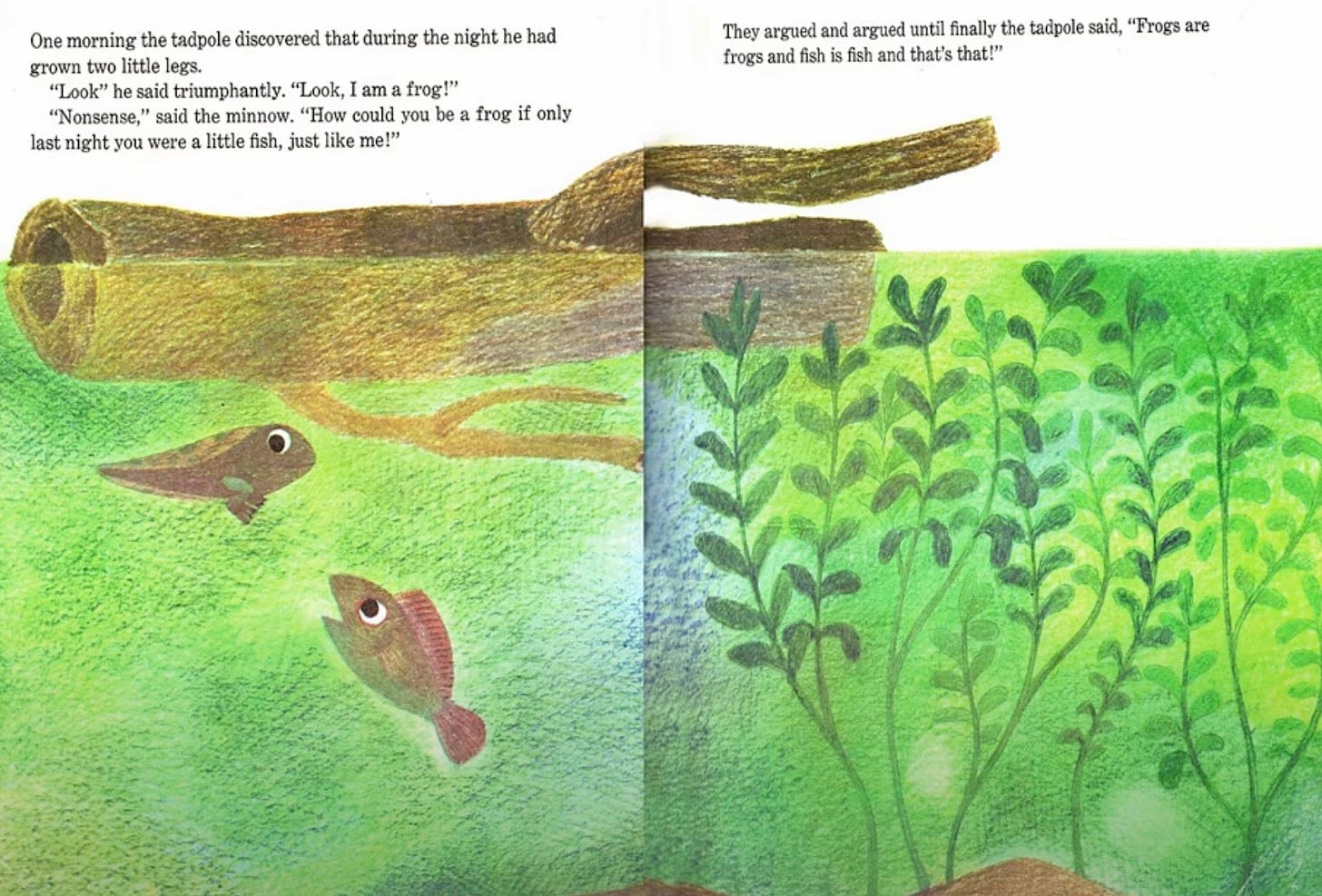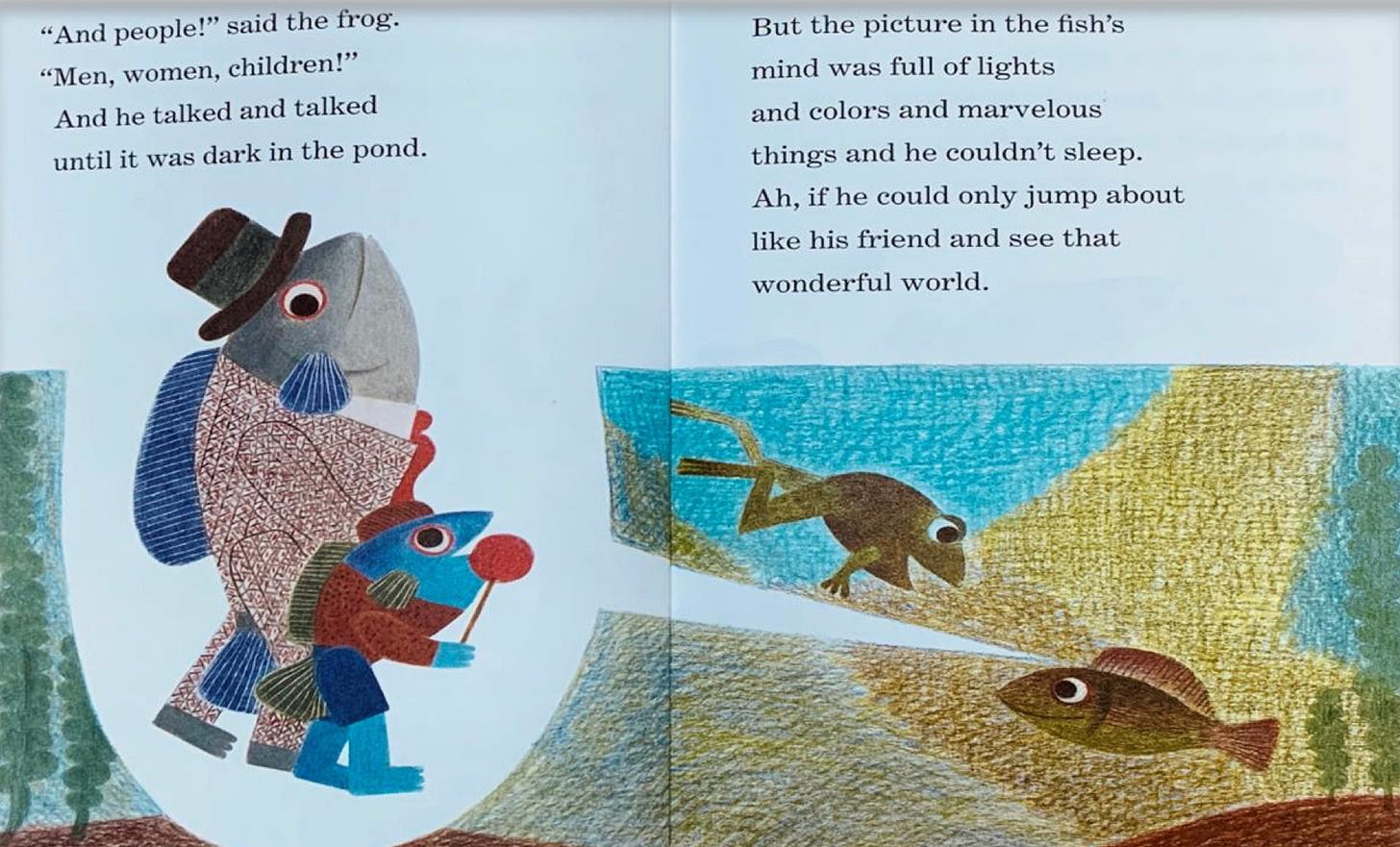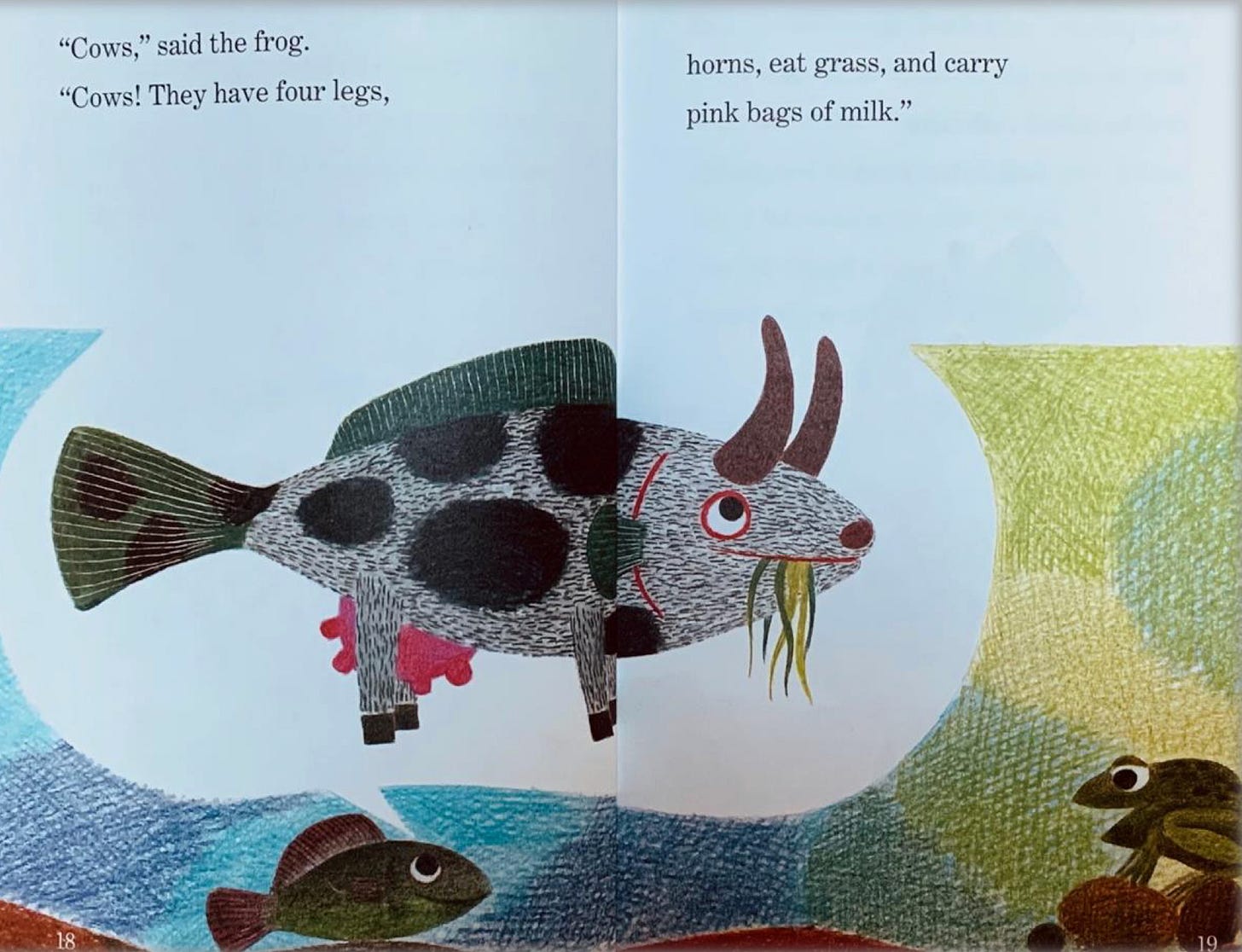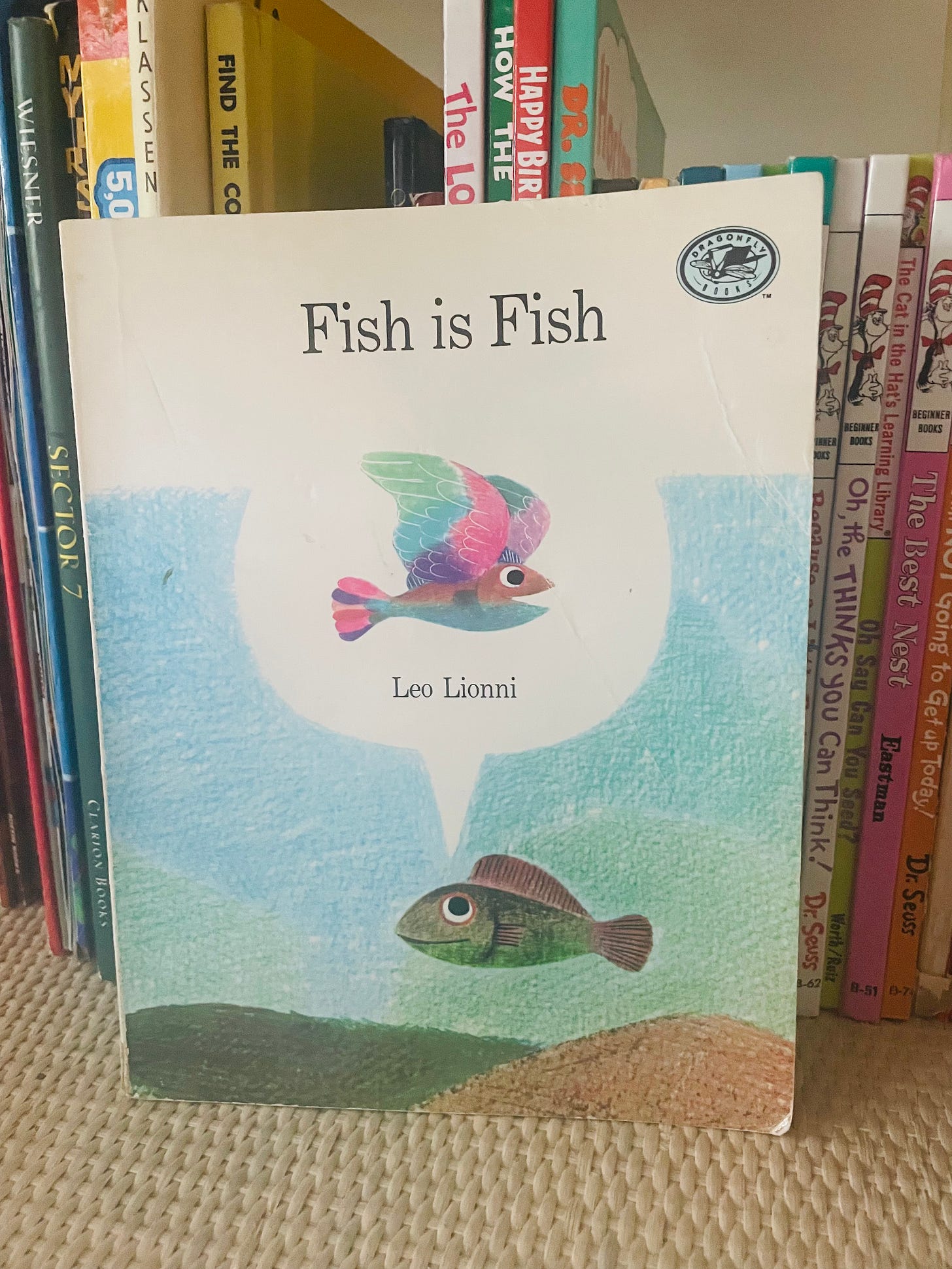The classic children’s storybook Fish is Fish by Leo Lionni is a good read for anyone with relationships impacted by COVID. [Video version here for the spoiler-averse.]
First, a summary:
Fish and Tadpole live in the same pond and are friends who (literally) share the same view of a world. When Tadpole starts to change into a Frog, Fish refuses to believe it and insists Tadpole is a Fish, not a Frog. They fight about the matter before Tadpole says, “Frogs are frogs and fish is fish and that’s that!”
Tadpole grows into a Frog, of course, and hops away from the pond into a new world.
He returns to the pond to tell Fish about the amazing creatures he has seen: A cow! A bird! A human!
As Frog describes each of these animals to his water-bound friend, Fish imagines what they look like.
Because Fish has no schema for grasping what Frog is trying to get him to see, all Fish can envision are fish-shaped creature with the parts and characteristics Frog is describing grafted on (e.g., a fish with cow parts on it).
Despite the limitations, Fish is motivated to see these creatures for himself. He valiantly escapes the pond but struggles to breathe. Frog helps him back into the water, where survival is easy and things make sense.
The story ends with Fish telling Frog, “Fish is fish.”
The problem facing Fish and Frog is the same challenge many relationships face at one point or another.
For a time there’s a shared perspective or no difference in perspective, especially if a divisive issue or situation hasn’t presented itself. Then one person’s perspective changes - whether due to nature, circumstance, or another set of factors - while the other person’s perspective does not or cannot change. The necessary shifts are simply impossible - like a Fish living out of water - or too hard.
Many people have at least one Fish/Frog relational divide in their lives as a consequence of the March 2020 pandemic declaration and events that followed. (If you have none, you are a rarity.)
Two extensions of Fish is Fish to the post-COVID Era come to mind:
The first is darker: The Pond is the “pandemic” environment into which we were all suddenly “dropped.” No one knew where The Pond came from, let alone how it got there so fast. Dangers lurked in the water, so we were told. The Pond was a New Normal with no chance for immediate escape. We were all in it together!
The tadpoles among us realized they were tadpoles and what that meant. They left Pandemic Pond - some sooner others - but the Fish are still stuck there and will never get out, it seems, because “Fish Is Fish and COVID is COVID and that’s that, The End.”
The second is more hopeful, transcendent, and magical: The Pond is “status quo” or “standard” ways of thinking about any event, phenomenon, concept, problem, or solution.
Everyone in the pond is a Fish until or unless they gain certain knowledge, insights, and experiences and are transformed by supernatural force into a Frog - at which point they escape that pond and leave the Fish behind.
Readers of Leo Lionni’s tale never get to find out if Fish and Frog remain companions.
I’d like to think they do, because there are two kinds of Frogs:
Teller/Telling Frogs are like the Frog in the book. They try to tell Fish what they see or know but give up pretty quickly because “Fish is fish and that’s that!”
Teacher/Teaching Frogs, by contrast, keep returning to The Pond, not just to tell but to try and teach the Fish. It’s not easy but the Teacher Frogs remember they were once Fish too.
I imagine the Frog in the story “toggling” between telling Fish the truth and showing him the truth, patiently and kindly.
Fish may never understand but it won’t stop Frog from loving & cherishing him all the same.
Similar theme:







Most excellent ‘parable’!
Applying the morals of parable and fable was a very useful way to decipher what was happening in lockdowns. You'd get multiple flashes of insight from reading a series of them.
This from Aesop is a good example:
The Hawk, the Kite, and the Pigeons
THE PIGEONS, terrified by the appearance of a Kite, called upon the Hawk to defend them. He at once consented. When they had admitted him into the cote, they found that he made more havoc and slew a larger number of them in one day than the Kite could pounce upon in a whole year.
Avoid a remedy that is worse than the disease.